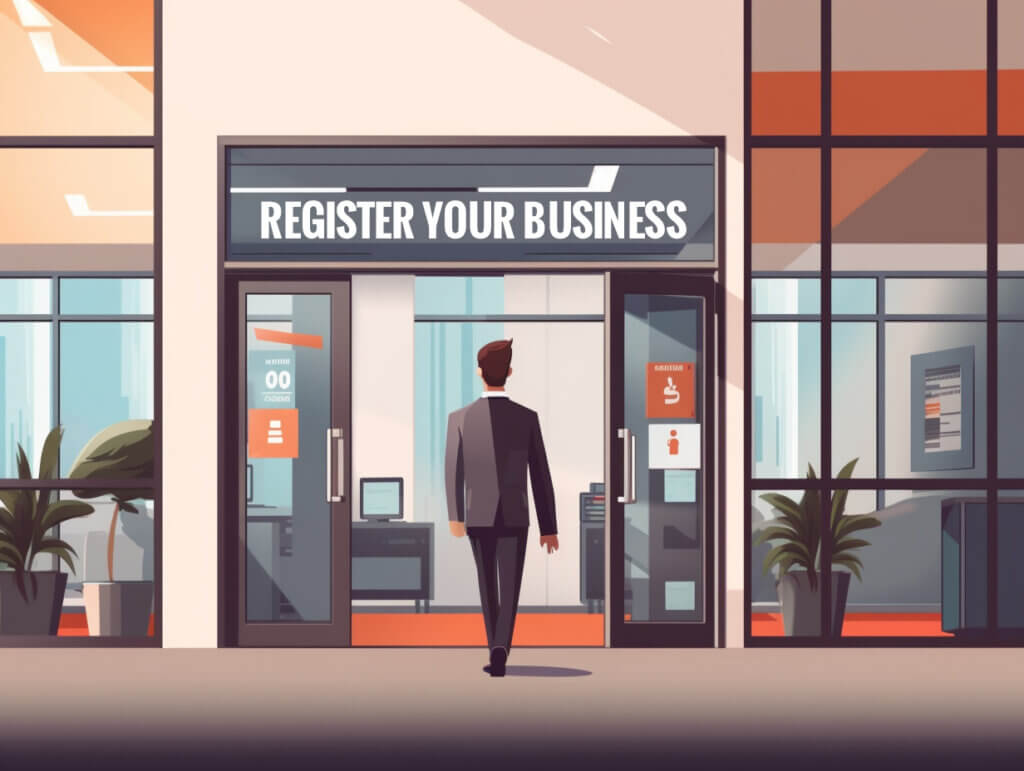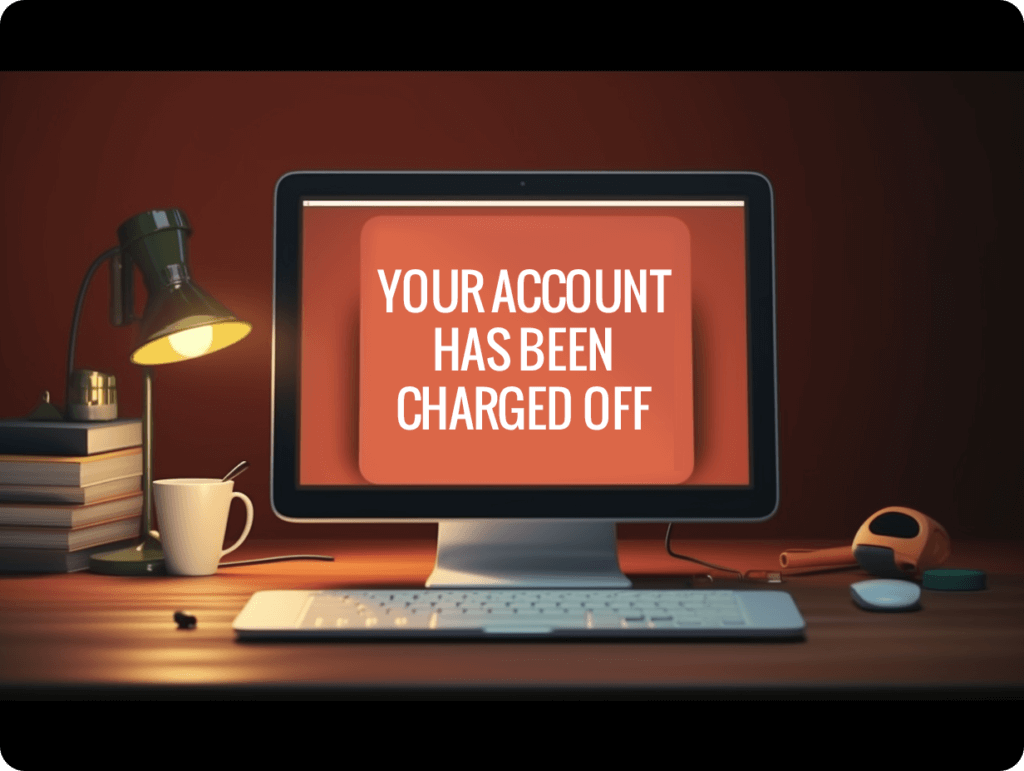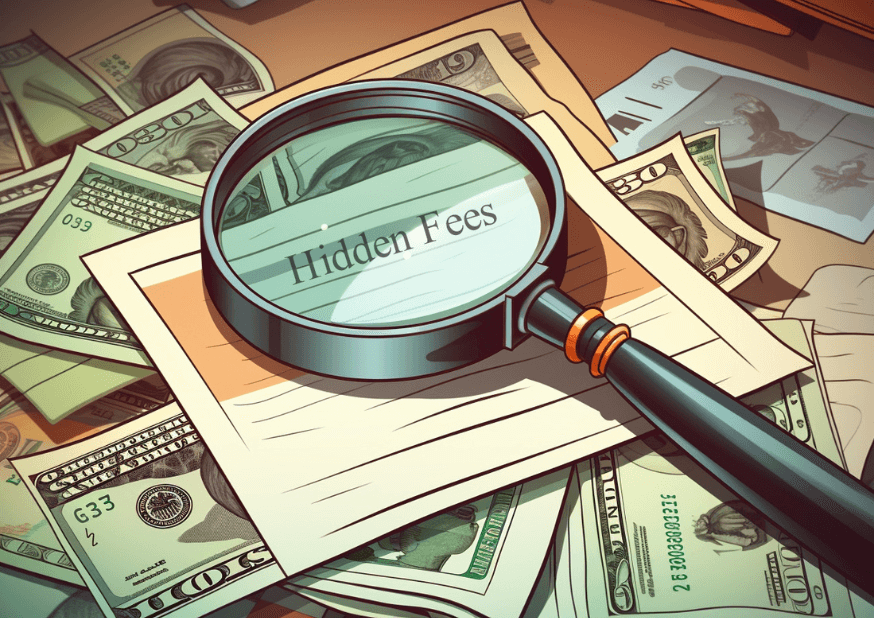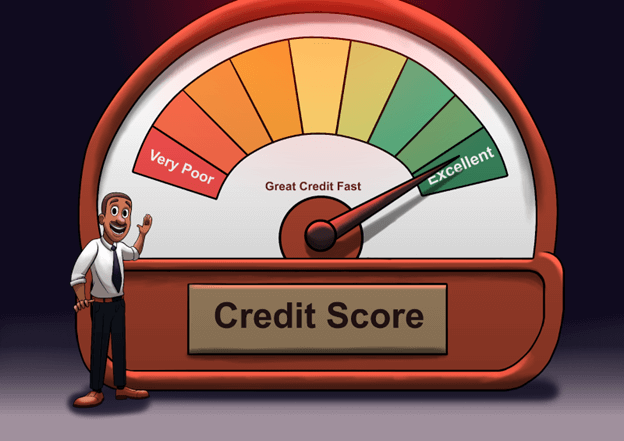- Blogs
- /
- How Long Does it Take to Build Business Credit? 7 Trusted Tips
How Long Does it Take to Build Business Credit? 7 Trusted Tips

Summary
Every savvy entrepreneur understands that getting financing is critical. It’s a key part of ensuring long-term financial success. One of the best ways to quickly access funds from lenders is to build your business credit.
Many entrepreneurs don’t know that building a robust credit history can have a massive positive impact on their business.
This impact extends beyond the early formative stages of their business. It forms the foundation for a long-term successful strategy.
Now, if you want to know how to build your business credit, read on. We’ll uncover valuable insights and answer the question of ‘how long does it take to build business credit.‘
Let’s explore!
Key Takeaways
- Business credit refers to a company’s ability to borrow money or obtain goods and services based on its reputation and financial history.
- Having an excellent credit score can help establish your credibility. It can also help you access capital when you need it.
- It can take 2 – 3 years to build your business credit score.
- Open a business bank account to handle business-related transactions and expenses.
- Having a business bank account protects you. It creates clear boundaries between your personal and business finances.
- Business credit can be built through trade lines, loans, and credit cards.
How Long Does it Take to Build Business Credit?

Building your business credit score takes a lot of time. And if you’ve just started your business, the process can take 2 – 3 years. This is one reason why almost 40% of companies don’t make it to their third year.
Steps to Building Your Business Credit
1. Choose a great business name
Your business name is your first impression. So, choose a short, simple, and catchy name that reflects your brand identity. Ensure it’s unique to avoid any copyright infringement.
Also, ensure you verify that your ideal brand name has 0an available ‘.com’ domain and available social media handles. The last thing you want is to spend a fortune trying to buy your domain and social media handles from someone else.
2. Get a business phone number and address
Get a separate business phone number and physical address. Doing this will enhance your professional image and also help you keep your personal and business finances separate.
Just so you know, you can use a voice-over-internet protocol (VOIP) number to receive business calls on your smartphone.
You can also use a virtual office as your business address. This way, you can save rent money while making your business look more professional.
Credit providers often check your address and phone number before approving you for credit. If you’re using a residential address or a personal phone number, these companies could decline to approve you for credit.
3. Create your business website and email
In the digital age, an online presence is non-negotiable. You need to build a website for your business, even if it’s a single-page website.
A strong online presence builds credibility. It also showcases your products or services to potential creditors. Also, don’t forget to get a business email address.
4. Register your business
Formalize your business structure by registering with the appropriate authorities. Proper registration establishes your business as a legal entity. You can choose a sole proprietorship, LLC, or corporation. It lays the foundation for building credit.
Also, don’t forget to visit the IRS’s website and get your Federal Employer Identification Number (FEIN).
5. Register for a Dun and Bradstreet number
Dun and Bradstreet (D&B) is a leading business credit bureau. So ensure you obtain a D&B D-U-N-S Number, a nine-digit unique identifier for your business.
Your Duns number allows you to showcase your business’s financial stability. Just like your FEIN number, creditors must confirm your DUNS number before deciding to give you credit.
6. Apply for a business credit card
A dedicated business credit card is instrumental in building credit. Choose a card with favorable terms, even if it’s got a very low limit.
Remember, responsible use can positively impact your credit profile. So, ensure you pay the balance on time to show that your business is reliable.
7. Register for a relevant Net-30 account
Net-30 accounts allow you to purchase goods or services and pay the invoice within 30 days.
Register for such accounts. Ensure timely payments. It’s one of the best ways to build your business credit. It also helps establish a positive payment history.
3 Critical Factors Influencing the Duration of Your Credit Building
1. Timely Payments
Paying bills and invoices on time is crucial for building and maintaining good business credit. Consistently making timely payments demonstrates your reliability and financial responsibility to creditors. Late payments, on the other hand, can hurt your credit score and reputation with lenders.
Consider setting up reminders or automatic payments to ensure you never miss a payment deadline. This way, you’ll receive notifications in advance, prompting you to pay your bills promptly.
Making timely payments is the key to building a solid, positive payment history. This can help strengthen your business credit profile.
2. Vendor Collaboration
Another effective strategy for building business credit is collaborating with vendors. These vendors report payment histories to credit bureaus.
Working with vendors who extend trade credit helps establish a positive track record of financial responsibility. Regularly reporting their payment experiences with your business is key to this.
Building solid relationships with vendors benefits your cash flow. It also improves your business credit. How?
As you consistently make timely payments to these vendors, they may be more inclined to increase your credit limits. They might also offer favorable terms in the future. This can provide additional flexibility when managing your business’s finances.
3. Acquiring Credit Cards
Building a credit score for your business requires establishing credit accounts in the company’s name. One way to do this is by applying for a business credit card.
A dedicated line of credit allows you to separate personal and business expenses. It also helps you establish a track record of responsible borrowing and repayment.
When choosing a business credit card, consider critical factors like interest rates, rewards programs, and associated annual fees.
Using the card responsibly is vital for timely payments and low credit utilization. By doing so, you can show that your business can manage its finances.
Also, when selecting a business credit card, choose one that reports to major credit bureaus. This ensures that your responsible card use will be reflected in your business’s credit profile. Always make regular, timely payments, and don’t use more than 30% of your available limit.
Here’s What You Must Know About Business Credit
Business credit refers to a company’s ability to borrow money or pay for goods and services based on its reputation and financial history. Your business credit is separate from personal credit. It is extremely vital to establishing and scaling your company’s credibility.
People have credit scores. Businesses have credit profiles. Lenders and suppliers use them to assess creditworthiness.
Why Your Business Needs to Build Credit
Building business credit is crucial. It helps establish your brand’s credibility with lenders, suppliers, and potential partners.
A business with a strong credit profile is more attractive to lenders. And this makes accessing great financing options and lower interest rates much better.
Instead of wasting time gathering resources, your business can access capital whenever you need to invest in growth opportunities. This includes expanding operations or launching new products or services.
But that’s not all. Good business credit can enhance your company’s reputation within its industry. This makes it easier to attract new customers and forge strategic partnerships.
Mechanisms for Building Business Credit
There are various mechanisms for businesses to build their credit profiles. One standard method involves trade lines. Through trade lines, businesses establish relationships with vendors. Vendors extend lines of credit for purchasing goods or services.
Businesses can demonstrate responsible financial management by consistently paying vendors early. This can help them build positive trade references.
Businesses can also build their credit by getting loans specifically for small businesses. These loans allow companies to demonstrate their ability to manage debt responsibly. They also help companies build a positive payment history.
Credit cards also play a significant role in building business credit. Using your business-specific credit cards responsibly can help your company establish a solid payment history. This can positively impact your overall credit profile. Paying bills on time and keeping balances low is vital.
Why Choosing the Right Business Structure is Vital

The structure of your business, whether a sole proprietorship, partnership, or corporation, can significantly affect your credit-building journey. Each structure has advantages and disadvantages regarding liability protection, tax obligations, and ownership flexibility.
For instance, a sole proprietorship is the simplest and most common form of business structure. As a sole proprietor, you have complete control over your business but are personally liable for any debts or legal issues that arise. This means your personal credit may be closely tied to your business credit.
On the other hand, forming a partnership allows two or more individuals to share ownership and responsibilities. In this case, each partner’s personal credit could influence the partnership’s ability to build credit.
It’s vital to carefully consider these dynamics before deciding on a partnership as your business structure.
Lastly, incorporating your business as a corporation provides the best separation between personal and business finances.
Corporations are considered separate legal entities from their owners or shareholders. This means the corporation’s credit profile differs from your personal credit profile.
That said, consulting with a business lawyer is the best way to choose the best structure for your business needs.
Their expertise will help guide you through selecting a suitable structure. This will be based on liability protection, tax implications, and long-term growth plans.
Legal and Financial Independence
Opening a dedicated business bank account is crucial in building business credit. By separating your finances from your business finances, you can track income, expenses, and cash flow more effectively.
Separating personal and business finances is essential for building strong business credit. Registering your business as a separate legal entity establishes its independence from personal finances.
This distinction helps protect both yourself and your company from potential liabilities. Doing this won’t only simplify record-keeping. It will also demonstrate your financial responsibility.
Maintaining clear boundaries between personal and business expenses contributes to a healthy credit profile. Lenders and credit agencies prefer to see that companies have separate financial records. They don’t want companies relying on personal funds for their operations.
This separation allows lenders to assess the creditworthiness of your business based on its financial history. It avoids being influenced by your personal financial condition.
Two Reliable Ways to Accelerate Your Business Credit Building
1. Get Multiple Credit Vendors
Imagine having all your eggs in one basket. If that basket were to fall and break, you would lose all your eggs at once. But if you had multiple baskets, even if one falls, you still have others to rely on. The same principle applies to working with multiple credit vendors for your business.
Diversifying your sources of credit by working with multiple vendors can significantly strengthen your business credit profile.
Getting solid trade lines with different suppliers showcases your ability to manage various financial relationships. It also gives you backup options if one vendor becomes unavailable.
By diversifying your sources of credit, you show that you can handle different payment terms and obligations. This shows potential lenders and creditors that you are a reliable borrower. You can manage various financial responsibilities.
2. Personal Credit Leverage
When building your business credit, leveraging your credit can be a great way to start. Personal guarantees on loans or credit cards can help secure financing for your business. The only downside is you’ll be personally responsible if the company cannot repay the debt.
Although this may seem like an added risk, it reflects positively on your ability to handle business finances responsibly. Demonstrating responsible personal credit management shows lenders and creditors that you are a trustworthy borrower.
Think of it as building a solid financial foundation before building your business. In this way, your personal credit is the foundation upon which you build your business credit.
Maintain good personal credit habits. Pay bills on time and keep balances low. This lays the groundwork for establishing strong business credit.
Here’s How to Monitor Your Business Credit

Regularly monitoring your business credit score is essential for effective credit management. By keeping a close eye on your credit score, you can stay informed about the financial health of your business and make informed decisions.
Understanding the factors that impact your score, such as your payment history and credit utilization, will help you identify areas that need improvement.
For example, if you notice that your payment history is inconsistent or that you are using a high percentage of your available credit, you can take steps to address these issues. That means paying bills on time and reducing debt because that would positively impact your credit score.
Consistent monitoring helps you detect errors or fraud that could hurt your credit. We understand that mistakes happen. It’s possible for incorrect information to appear on your business credit report.
Regularly review your report from major business credit bureaus. Or business credit reporting agencies. This way, you can catch any inaccuracies early. Take the necessary steps to dispute them.
How to Handle the Impact of Your Initial Score
If you’ve just started your business credit journey, it’s common for the initial score to be low due to your limited credit history. This is just like how people with no established personal credit history often start with a lower credit score.
However, this doesn’t mean you’d be stuck with a low score forever. Consistent and responsible credit management will gradually improve the score over time.
Establish positive financial habits. Make timely payments and maintain low revolving account balances. Lenders will start to see you as a reliable borrower.
Building solid relationships with suppliers who report payment information to the major business credit bureaus can also improve your initial score.
When these suppliers report consistent, on-time payments from your business, it shows reliability. It helps boost your credibility in the eyes of lenders.
How to Access Business Credit
Application for Credit Cards
Applying for business credit cards is vital in building your business credit. But, having a solid credit profile and practicing responsible financial management is crucial. Before applying, take the time to research different card options and choose ones that align with your business needs.
When evaluating credit card options, pay attention to any fees, interest rates, or rewards programs associated with the cards. Some cards may offer cashback rewards or travel benefits that can benefit your business.
Others may have annual fees or higher interest rates but provide more extensive perks. Ensure you consider these factors carefully before making a decision.
Immediate Credit Access
Yes, building good business credit takes time, but there are ways to gain immediate access to credit for your business.
One option is through personal guarantees or secured loans. Personal guarantees involve using your personal credit history and assets as collateral for the loan. Secured loans need you to provide collateral like equipment or even your property.
These options are great ‘short-term’ solutions that’d help you build your business credit history. Using them wisely and responsibly is essential to avoid excessive debt that could harm your financial stability in the long run.
You can fulfill your business’s urgent financial needs in two ways. First, get immediate credit access through personal guarantees. Second, secure loans. This way, you can avoid relying solely on your business’s current credit standing.
This allows you to make necessary investments and cover expenses promptly. It helps you work towards establishing a solid business credit profile.
Remember that while these methods can provide quick access to funds, they come with risks if you don’t manage them properly. So, ensure you have a clear plan in place for repayment and stay on top of your financial responsibilities.
Building good business credit is a gradual process that requires consistent effort over time. Immediate access to credit can be beneficial in certain situations. But it’s important not to rely on these methods. Instead, focus on building a solid foundation of good business credit scores.
Strategic Credit Goals

Set Achievable Goals
It’s essential to establish clear goals for building business credit. This helps maintain focus and motivation. By setting targets, you can track your progress and stay on course.
Consider what you want to achieve with your business credit. This could be improving your credit score, obtaining specific financing options, or expanding vendor relationships.
Let’s say you want to improve your credit score; you can set a goal of increasing your score by a certain number of points within a specific timeframe. This gives you something concrete to work towards and helps you stay motivated.
It’s important to regularly reassess and adjust your business’s financial goals as its financial situation evolves. As you build your business credit, new opportunities that need different objectives may arise. So, always stay flexible and adapt as needed to ensure continued growth.
Trust the Process
Building business credit is not an overnight endeavor; it requires patience and persistence. Establishing a solid credit history and developing trust with lenders and vendors takes time.
Building your business credit won’t happen overnight. It needs careful planning, laying each brick one by one until the structure is strong enough to support everything else.
During this process, staying committed to responsible financial practices is crucial. Make timely payments on all your debts. Avoid excessive borrowing. Keep track of your credit utilization ratio. This is the percentage of available credit you’re using.
Building strong business credit opens doors for future opportunities. These include favorable loan terms and higher credit limits. So, even though it may take some time to see significant results, staying patient will pay off.
Final Thoughts
Remember, building credit takes time and patience, so don’t get discouraged if you don’t see immediate results. Always monitor your credit and make timely payments.
Also, consider setting strategic credit goals aligned with your business objectives. Always strive to maintain solid credit habits.
With dedication and perseverance, you’ll be well on your way to achieving financial success for your business. So what are you waiting for? It’s time to put your knowledge into action and start implementing these strategies today!
FAQs
1. How long does it take to build business credit?
Building business credit takes time and varies depending on several factors. Establishing a solid foundation can take around six months to a year. But building strong credit can take anywhere between 2 and 3 years.
Credit building is an ongoing process. It requires consistent effort and responsible financial management.
2. What is the importance of formalizing a business structure for building credit?
Lenders and credit agencies prefer working with businesses with a formal structure. A formal structure demonstrates stability and separates personal and business finances.
3. What are the steps involved in building business credit?
First, get an Employer Identification Number (EIN) to build business credit. Then, open separate business bank accounts. Also, establish trade lines with suppliers/vendors who report to credit bureaus.
Also, ensure you make timely payments, check your credit regularly, and apply for small lines of credit.
4. How can I accelerate the process of building my business credit?
You can speed up the process by managing your finances. Pay bills early or on time, keep low balances on your credit accounts, and diversify your sources of credit.
Also, maintain good relationships with suppliers/vendors who report to credit bureaus. Consistently show responsible financial behavior.
5. Why is monitoring my business credit important?
Monitoring your business’s credit lets you stay informed about changes or errors. It helps you detect fraudulent activity and address report inaccuracies. This helps you stay in good standing with creditors. You can make necessary adjustments to improve your creditworthiness.
Our Latest Blogs:

ThisIsJohnWilliams
FREE Strategy Session to Fix Your Credit Blogs / Facebook Twitter Linkedin Instagram Share Summary Becoming a homeowner is...

ThisIsJohnWilliams

ThisIsJohnWilliams
FREE Strategy Session to Fix Your Credit Blogs / Facebook Twitter Linkedin Instagram Share Summary Banks allow customers to...

ThisIsJohnWilliams

ThisIsJohnWilliams
FREE Strategy Session to Fix Your Credit Blogs / It’s no longer a secret that credit scores are a...






